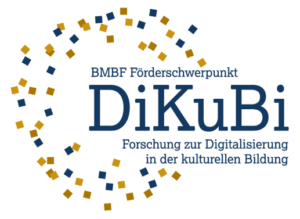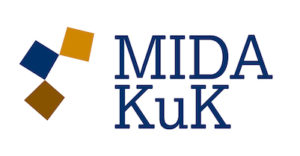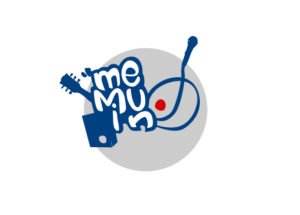Entsprechend meiner gleichermaßen erziehungswissenschaftlichen und philosophischen Ausbildung forsche ich theoretisch (hier auch unter Einbezug historiographischer Perspektiven) und (qualitativ-) empirisch.cMeine theoretisch ausgerichtete Forschung bezieht sich auf Begriffe und Grundlagenfragen etwa zu Identität/Subjektivität, Medialität und Digitalität. Die empirischen Forschungen an meinem Lehrsuthl beziehen sich v.a. im Kontext der ästhetischen, künstlerischen und kulturellen Bildung auf Fragen der Digitalisierung sowie der feldbezogenen Methodenentwicklung.
English translations see below! In accordance with my educational and philosophical training, I conduct theoretical (here also including historiographical perspectives) and (qualitative) empirical research. My theoretically oriented research refers to concepts and fundamental questions concerning identity/subjectivity, mediality and digitality. The empirical research conducted at my chair focuses on questions of Digitalization and field-related method development, especially in the context of Aesthetic, Arts and Cultural Education.
Drittmittelfinanzierte Forschungsprojekte
Bibliotheken, Digitalisierung und kulturelle Bildung in peripheren Räumen: Bedingungen und Modelle zur Entwicklung der Bibliothek als Kulturort im Kontext post-digitaler Jugendkultur (BiDiPeri, BMBF, 2019-2023)

Wie können periphere Räume so entwickelt werden, dass sie auch für „digital Natives“ ein kulturell attraktives Lebensumfeld bieten? Wie können Bibliotheken zu digitalen Innovationsmotoren in peripheren Räumen werden? Mit diesen Fragen geht das Forschungsprojekt BiDiPeri der gesellschaftlich drängenden Frage nach, wie mithilfe kultureller und pädagogischer Inervention eine strukturelle Rückständigkeit von ländlichen Räumen, die vor allem bei den jüngeren Generationen häufig zur Landflucht führt, ausgeglichen werden kann. Welche Angebote einer (post-) digitalen kulturellen Bildung können im peripheren Raum Gleichwertigkeit herstellen und ggf. regional bedingte Stärken fördern?
Digitale Kulturelle Bildung – ein Metavorhaben (DiKuBi-Meta, BMBF, 2017-2023)

Das Meta-Vorhaben DiKuBi-Meta führen wir in zwei Teilprojekten gemeinsam mit unserem Nürnberger Kollegen Stephan Kröner (TP2) durch. Aufgabe dieses Vorhabens ist es, 1) im Rahmen der geförderten Projekte der BMBF-Förderrichtlinie „Digitalisierung in der Kulturellen Bildung“ Ergebnisse hinsichtlich ihrer gesellschaftlichen und pädagogischen Bedeutung theoretisch zu modellieren, zu kontextualisieren und einzuschätzen und diese zu disseminieren (TP1), sowie 2) qualitative (TP1) und quantitative (TP2) Methodenentwicklung voranzutreiben und die Projekte im Verbund sinnvoll miteinander zu vernetzen. Überblick der Förderrichtlinie auf KuBi-Online, Website
Musikalische Interface-Designs – Augmentierte Kreativität und Konnektivität (MIDAKuK, BMBF, 2017-2022)

Das Projekt „Musikalische Interface-Designs – Augmentierte Kreativität und Konnektivität“ (MIDAKuK) erforscht neue hybride (digital-materielle) Instrumente und „MusikmachDinge“ in einer designtheoretischen Perspektive. Dazu zählen etwa die Eigenharp Tau und Pico, Ableton Push2/Live, Roli Seaboard/Blocks, die elektroorganische Aframe Drum und andere. Weitere Informationen: Website, Blogeintrag, Projektabschlussbericht
Kondensiertes Glück? Mehrtägige musikpädagogische Interventionen: Determinanten der Teilnahme, wirksame Gestaltungsmerkmale und Effekte auf Kompetenzen und Persönlichkeitsentwicklung (MEMU-IN, BMBF, 2016-2019)

Das Vorhaben ist in zwei Teilprojekte unterteilt: Das Teilprojekt 2 (Kröner/Hasselhorn/Jörissen) führt eine Serie musikpädagogischer Feldexperimente zu Determinanten und Effekten musikpädagogischer Interventionen im Rahmen eines komplexen mixed methodology-Designs durch. Weitere Informationen: Website, Blogeintrag
Postdigitale kulturelle Jugendwelten – Entwicklung neuer Methodeninstrumente zur Weiterentwicklung der Forschung zur Kulturellen Bildung in der digitalen und postdigitalen Welt (DiKuJu, BMBF, 2016-2019)
Das Vorhaben möchte erstmals ausführlich prüfen, wie sich der digitale Medienwandel auf die aktuelle ästhetische und künstlerische Praktiken junger Menschen ausgewirkt hat. Es verschränkt hierzu qualitative und quantitative Methoden. Neben Experteninterviews und einem BarCamp, das erstmals als Erhebungsinstrument eingesetzt wird, ist eine Befragung in Form von 2000 face-to-face-Interviews geplant. Weitere Informationen: Website, Blogeintrag, Projektabschlussbericht
Third party funded projects
Libraries, Digitalization and Arts and Cultural Education in Rural Regions: Conditions and Models for the Development of the Library as a Cultural Site in the Context of Post-digital Youth Culture (BiDiPeri, BMBF, 2019-2022)

How can rural spaces be developed in such a way that they also offer a culturally attractive living environment for “digital natives”? How can libraries become digital innovation engines in peripheral spaces? With these questions, the BiDiPeri research project addresses the socially pressing question of how cultural and educational intervention can help compensate for the structural backwardness of rural areas, which often leads to rural exodus, especially among younger generations. Which offers of (post-) digital Arts and Cultural Education can create equivalence in peripheral areas and, if necessary, promote regional strengths?
Digital Arta & Cultural Education – a Meta-Project (DiKuBi-Meta, BMBF, 2017-2022)

We are carrying out the DiKuBi-Meta meta project in two subprojects together with our Nuremberg colleague Stephan Kröner (Subproject 2). The task of this project is 1) to theoretically model, contextualise and assess the results of the funded projects of the BMBF funding guideline “Digitisation in Cultural Education” with regard to their social and pedagogical significance and to disseminate them (Subproject 1), as well as 2) to advance the qualitative (Subproject 1) and quantitative (Subproject 2) development of methods and to network the projects in a meaningful way. https://www.dikubi-meta.fau.de/
Musical Interface Designs – Augmented Creativity and Connectivity (MIDAKuK, BMBF, 2017-2021)

Our research project “Musical Interface Designs – Augmented Creativity and Connectivity” (MIDAKuK) explores new hybrid (digital-material) instruments and “music-making things” from a design theoretical perspective. These include the Eigenharp Tau and Pico, Ableton Push2/Live, Roli Seaboard/Blocks, the “electro-organic” Aframe Drum and more. https://www.dikubi-meta.fau.de/midakuk/
“Condensed happiness”? Several-day music pedagogical interventions: Determinants of participation, effective design characteristics and effects on competencies and personality development (MEMU-IN, BMBF, 2016-2019)

The project embraces two sub-projects: Our Subproject 2 (Kröner/Hasselhorn/Jörissen) conducts a series of music pedagogical field experiments on determinants and effects of music pedagogical interventions within the framework of a complex mixed methodology design.
(Post-) Digital Cultural Youth Worlds – Development of New Methodological Instruments for the Development of Research on Arts and Cultural Education in the Digital and Post-Digital World (DiKuJu, BMBF, 2016-2019)
The project examines in detail how the digital media change has affected the current aesthetic and artistic practices of young people. It combines qualitative and quantitative methods for this purpose. In addition to expert interviews and a BarCamp, which will be used for the first time as a survey instrument, a survey in the form of 1200 face-to-face interviews has been conducted.[/vc_column_text][/vc_column][/vc_row]